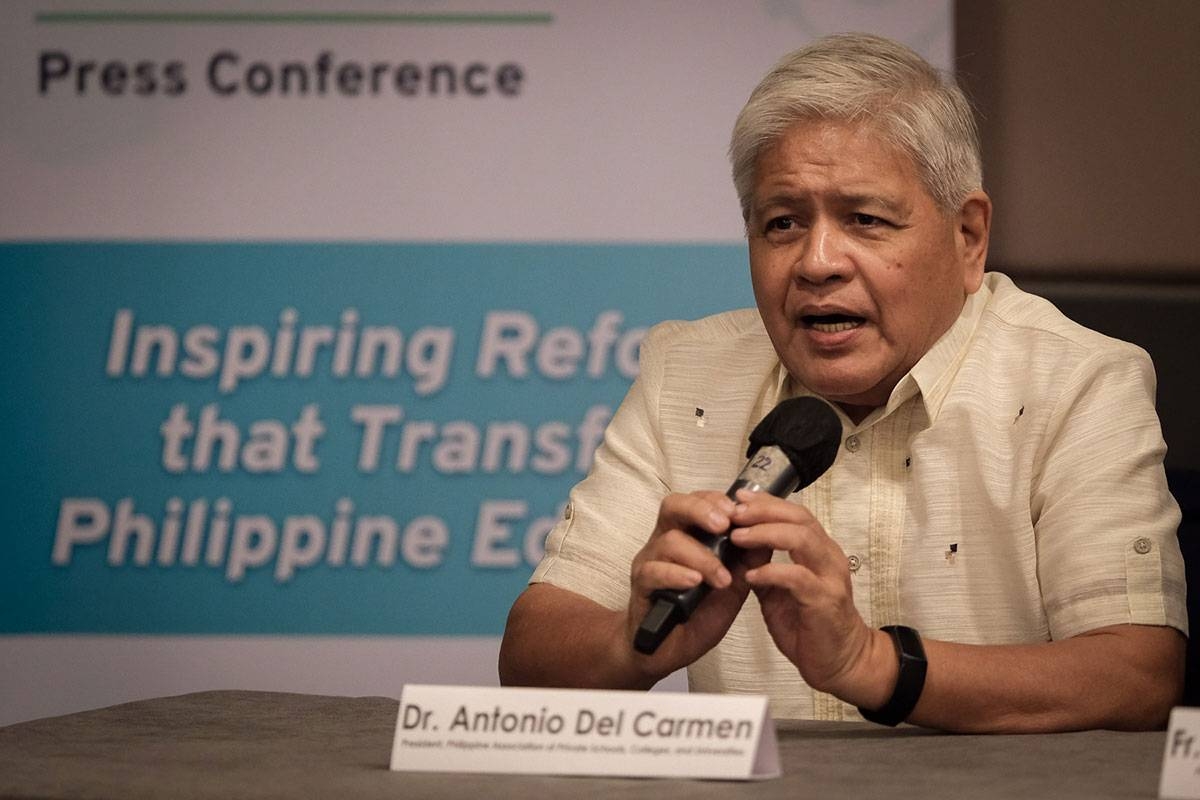Ensuring the quality of education is one of the most pressing challenges facing the education sector in the Philippines, according to stakeholders. During a press conference at the Philippine Education (PhilEd) Conference, Antonio del Carmen, President of the Philippine Association of Private Schools, Colleges, and Universities (Papsu), highlighted the need for improving the education system’s quality.
Del Carmen emphasized, “For me, the biggest challenge we are facing now in education is the quality that we are providing to our students. Numerous studies, both local and international, have shown that our students are lagging behind in terms of competencies, skills, and knowledge in subjects like math, English, and science.”
The education system’s high student population remains a significant factor contributing to this challenge. Del Carmen acknowledged that both the public and private sectors need to work together to address this issue. The Department of Education (DepEd) revealed that for the School Year 2023-2024, approximately 22.8 million students are enrolled, while there are only 900,000 teachers available.
Education stakeholders agree that this learning crisis demands immediate attention. Joseph Noel Estrada, Chief Legal Officer of the Second Congressional Committee on Education (Edcom 2), highlighted the complexity of the problems within the Philippine education system. He stated, “There are many problems, issues, and challenges at play. We cannot pinpoint a single cause, whether it be teacher competency, low student outcomes, or performance. It is collectively referred to as the learning crisis.”
Edcom 2 is actively addressing this crisis by focusing on 28 priority areas. These include legislative measures, policy interventions, and increased participation from the private sector. By targeting these areas, they aim to improve the overall quality of education in the Philippines.
One crucial aspect that needs attention is teacher competency. Enhancing the skills and knowledge of educators is vital for providing quality education. This can be achieved through continuous professional development programs, mentorship initiatives, and access to resources that promote effective teaching methodologies.
Additionally, the learning crisis calls for a comprehensive evaluation of the education curriculum. Revisiting and updating the curriculum to align with global standards and industry demands will equip students with the necessary skills for future success. This includes incorporating practical and hands-on learning experiences that foster critical thinking, problem-solving, and creativity.
Furthermore, the involvement of the private sector is crucial in addressing the challenges faced by the education system. Collaboration between private companies and educational institutions can facilitate the development of innovative teaching methods, technology integration, and the provision of necessary resources. By working together, the public and private sectors can create a more conducive learning environment for students.
Legislation and policy interventions are also essential in driving the necessary changes. The government should prioritize education funding to ensure adequate resources for schools, including infrastructure improvements, updated learning materials, and access to technology. Additionally, policies should be implemented to promote equal opportunities and inclusivity in education, addressing issues such as access to education for marginalized communities and students with disabilities.
Ultimately, addressing the learning crisis in the Philippines requires a multi-faceted approach. It demands collaboration among various stakeholders, including educators, policymakers, the private sector, and the government. By focusing on improving teacher competency, revising the curriculum, and fostering collaboration, the education sector can strive towards providing quality education that equips students with the skills and knowledge they need to succeed in an ever-changing world.
Source: The Manila Times







